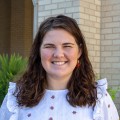Let There Be Light
by
In the beginning, God created the heavens and the earth. The earth was without form and void, and darkness was over the face of the deep. And the Spirit of God was hovering over the face of the waters.
And God said, “Let there be light,” and there was light. And God saw that the light was good. And God separated the light from the darkness. God called the light Day, and the darkness He called Night. And there was evening and there was morning, the first day.
In the beginning was the Word, and the Word was with God, and the Word was God. He was in the beginning with God. All things were made through Him, and without Him was not any thing made that was made. In Him was life, and the life was the light of men. The light shines in the darkness, and the darkness has not overcome it.
Long ago, at many times and in many ways, God spoke to our fathers by the prophets, but in these last days He has spoken to us by His Son, whom He appointed the heir of all things, through whom also He created the world. He is the radiance of the glory of God and the exact imprint of His nature, and He upholds the universe by the word of His power. After making purification for sins, He sat down at the right hand of the Majesty on high, having become as much superior to angels as the name He has inherited is more excellent than theirs.
Genesis 1:1-5; John 1:1-5; Hebrews 1:1-4
If you’re like me, you have a complicated relationship with sequels and remakes. I grew up watching the 1983 version of The Best Christmas Pageant Ever, and while part of me can’t wait to see Dallas Jenkins’ version in theaters this December, there's a good chance I won't love it as much as the original. You see, that’s the problem with sequels and remakes—we long to return to the stories we know and love, but all too often, they fail to live up to the wonder and magic of the original.
Yet when we open our Bibles to John 1, we are met with a sequel that is even better than the original. John opens his Gospel with three words: “In the beginning.” With these three little words, we are reminded of the first time we’ve heard them—when God spoke Creation into existence. What is John doing? Why does he want us to remember Genesis 1?
Most of us are familiar with the startling claim John makes in the first verses of his Gospel—that the man Jesus is the very Word of God, the One who created the world, God Himself. John tells us that the One who said, “Let there be light!” (Genesis 1:3) is the same One who came into the world as light (John 1:3-5). This is an amazing and mind-blowing claim, but I don’t want us to miss what else John is doing. The Gospel of John is rich and complex, full of different images and allusions, including several references to Creation (for example, John 20 returns us to the Garden). What is John trying to say? Why all the references to Creation? Because in Jesus Christ’s resurrection, the New Creation has begun. This is the sequel to end all sequels, the remake that does not disappoint. Even now, Jesus Christ is restoring, renewing, and making new His good Creation.
It’s easy to forget this, isn’t it? We look around at the darkness and brokenness of our world, and it’s hard to think that any of this looks, well, new. It’s easy to lean into the “not yet” of the Kingdom, forgetting that it really is “now” too, that Jesus Christ is already ruling and reigning. Yet Jesus Christ is risen from the dead. The New Creation really has dawned. Jesus is, even now, making all things new (Revelation 21:5). And if you belong to Jesus, you belong to this New Creation (2 Corinthians 5:17).
What difference would it make in your week if you really believed that the New Creation has come? How would it change the way you live Monday through Saturday? Advent is a season of waiting, but it is also one of hope. The dawning of the New Creation should transfuse our lives with hope and joy, because we know that no matter how dark things look, the restoration process has started. And if you need proof, just look in the mirror.
“The light shines in the darkness, and the darkness has not overcome it.” The light has conquered and is conquering the darkness. Happy Advent.
